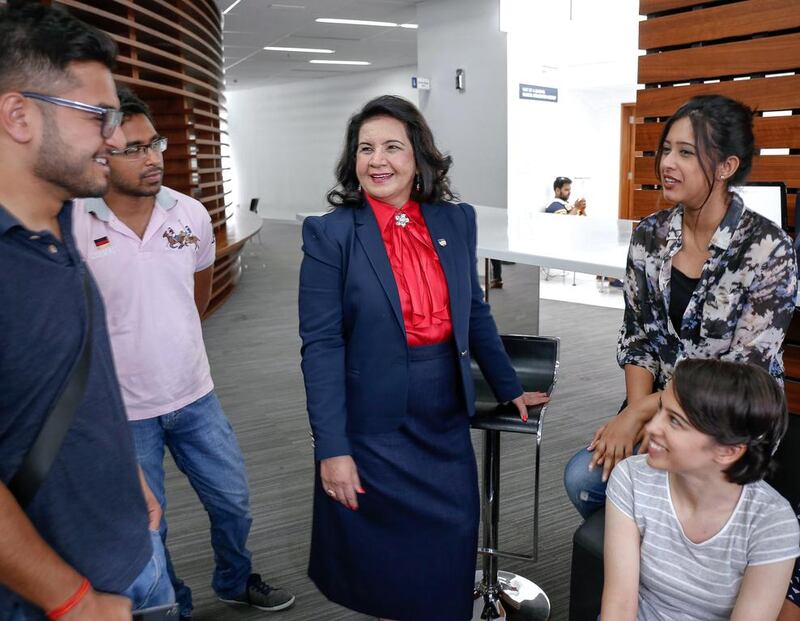DUBAI // The high cost of housing may be deterring students from studying in Dubai despite the largest concentration of international branch campuses in the world, most of them with cheaper fees than their home campuses.
With about 27 international campuses, Dubai aims to attract students from Africa, Asia and the Middle East.
Experts, however, said there were barriers to attracting students from beyond the UAE.
Dr Warren Fox, head of higher education at the KHDA, Dubai’s education regulator, said housing was a “major challenge” for students, and new campuses are acknowledging that by building accommodation into developments.
At present, only a handful of universities have stand-alone campuses, such as Heriot-Watt and the Institute of Management Technology.
“The new ones are aware of that challenge and are building dorms – universities such as Emirates Aviation Academy and Amity,” he said.
“Other campuses have dorms, such as American University Dubai and Institute of Management and Technology, but there’s a real role for the private sector here.”
The city’s international campuses are satellites of universities in India, Pakistan, Scotland and Australia.
“Accommodation cost is of high concern to international students and it increases the cost of studying in Dubai significantly, which is a setback when compared to other destinations like Malaysia and some European countries,” said Mohammed Hettini, marketing and student recruitment director at the University of Wollongong (UOW) in Dubai. About 25 per cent of the university’s students are international and the fees are considerably cheaper than at UOW in Australia.
An MBA in Australia costs Dh134,000, while at the Dubai campus it costs Dh100,000.
However, self-catered university accommodation would cost Dh640 a week in Australia while the self-catered, shared accommodation offered by the university in Jebel Ali Gardens starts at Dh850 per week, or Dh1,100 in Tecom.
“The cost of living is an issue raised by international students, especially the accommodation cost, which at times is the same as the tuition fees per term,” Mr Hettini said.
India’s Amity University is one of the few international campuses where fees cost more than the home campus.
A Bachelor of Technology in aerospace engineering will cost Dh58,000 a year at the Dubai campus, as opposed to Dh10,276 in Mumbai.
Mariam Shaikh, vice president for student recruitment and admissions, said 20 per cent of its 1,600 students came to Dubai solely to study.
It is one of the few universities that will have its own accommodation, for up to 300 students, when it launches a purpose-built campus in Dubai International Academic City in September.
Cost is different elsewhere in the UAE. England’s Bolton University has a campus in RAK.
Its director, Raj Nambiar, said the campus hoped to gain about 15 per cent of its student body from abroad but the actual figure is about 25 per cent, or 98 of its 420 students, who find the living costs in RAK cheap.
“It has been advantageous for our students because they have access to affordable housing at the hostel accommodation on campus – made available through EDRAK,” said Mr Nambiar. “The availability of student housing has helped attract students as it helps reassure students and their parents.”
Self-catered accommodation at one of the blocks costs Dh14,000 a year, based on two sharing, so is more affordable than in Dubai.
mswan@thenational.ae






